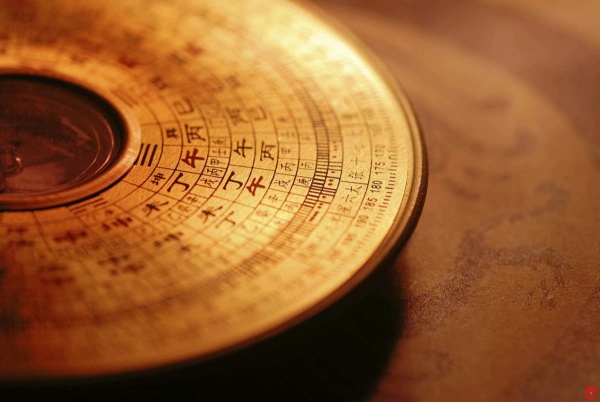The I Ching, also known as the Book of Changes, is a fundamental text in Chinese philosophy and divination, consisting of 64 hexagrams that represent various aspects of life, nature, and human behavior. Each hexagram is composed of six lines, which can be either Yin (solid) or Yang (open), resulting in two possible configurations for each line. These configurations are then combined to form the 64 hexagrams. The meanings of these hexagrams are deeply rooted in Chinese culture.

Many learners find the ancient Chinese text difficult to understand, so here I have written the simplest English explanation of the 64 hexagrams below

1.Qián (乾) – The Creative
The source of power is strong, which is conducive to starting a career.
2.Kūn (坤) – The Receptive
Tolerant and tolerant, it is conducive to the growth and development of all things.
3.Zhūn (屯) – Difficulty at the Beginning
There are difficulties and obstacles, so it is suitable to gather strength.
4.Mèng (蒙) – Youthful Folly
Chaos has just begun to emerge, suitable for enriching one’s education.
5.Xū (需) – Waiting (Nourishment)
The time has not come yet, so be patient and wait.
6.Sòng (讼) – Conflict
Encountering verbal disputes.
7.Shī (师) – The Army
Suppress evil with good and lead the crowd to attack.
8.Bì (比) – Holding Together (Union)
Easy-going, friendly, and getting along with others.

9.Xiào Chù (小畜) – The Taming Power of the Small
The accumulation is still shallow and not sufficient.
10.Lǚ (履) – Treading (Conduct)
Practice vigorously and act with etiquette.
11.Tài (泰) – Peace
unobstructed, everything will always be connected.
12.Pí (否) – Standstill (Stagnation)
blocked, blocked, powerless.
13.Tóng Rén (同人) – Fellowship with Men
It is important to follow the crowd.
14.Dà Yǒu (大有) – Possession in Great Measure
Happy harvest.
15.Qiān (谦) – Modesty
Humble and prudent, keeping things hidden.
16.Yu (豫) – Enthusiasm
Happiness and joy, peace of mind.

17.Sui (随) – Following
Follow in the footsteps of others and submit to the strong.
18.Gu (蛊) – Work on the Decayed (Corruption)
Set things right from chaos, and do not avoid relatives and virtuous people.
19.Lín (临) – Approach
A noble person comes and an expert patronizes you.
20.Guān (观) – Contemplation (View)
Investigate, wait and see, think twice before acting.
21.Shì Kè (噬嗑) – Biting Through
Keep communicating and communicate effectively.
22.Bì (贲) – Grace
Emphasis on etiquette on the inside and image on the outside.
23.Bō (剥) – Splitting Apart
Remove the false and preserve the true.
24.Fù (复) – Return (The Turning Point)
When you have lost your way, you will find your way back.

25.Wú Wàng (无妄) – Innocence (The Unexpected)
No rash actions, no mistakes.
26.Dà Chu (大畜) – The Taming Power of the Great
I have been stocking up on animals for a long time and am fully prepared.
27.Yí (颐) – Nourishment (Providing)
To nourish the body and mind.
28.Dà Guò (大过) – Preponderance of the Great
Too much, and you have already suffered a loss.
29.Kǎn (坎) – The Abysmal (Water)
The obstacle is dangerous and blocks the road.
30.Lí (离) – The Clinging (Fire)
Exposed, showing off, should be restrained.
31.Xián (咸) – Influence (Wooing)
The mind is connected and the senses are clear.
32.Héng (恒) – Duration
Unchangeable.

33.Dùn (遁) – Retreat
Escape, retreat.
34.Dà Zhuàng (大壮) – The Power of the Great
In full view of the public, it attracts wind and fire.
35.Jìn (晋) – Progress
Promotion, advancement.
36.Míng Yí (明夷) – Darkening of the Light
A seasoned and steady person who consciously avoids risks.
37.Jiā Rénn (家人) – The Family (The Clan)
Managing the family comes first.
38.Kuí (睽) – Opposition
Turn your head against your will, turn your back.
39.Jiǎn (蹇) – Obstruction
Difficulties.
40.Xiè (解) – Deliverance (Untangling)
Untie, release.

41.Sǔn (损) – Decrease
Loss, damage.
42.Yì (益) – Increase
Profit, benefit.
43.Guài (夬) – Breakthrough (Resoluteness)
Flawed, incomplete.
44.Gòu (姤) – Coming to Meet
Encounter, coincidence, sparse but not close.
45.Cùi (萃) – Gathering Together (Massing)
Outstanding.
46.Shēng (升) – Pushing Upward
Rising, rising.
47.Kùn (困) – Oppression (Exhaustion)
Trapped, surrounded.
48.Jǐng (井) – The Well
Planning, restraint, persistence.

49.Gé (革) – Revolution (Molting)
Change, innovation.
50.Dǐng (鼎) – The Cauldron
Standing alone, the ultimate.
51.Zhèn (震) – The Arousing (Shock, Thunder)
desire to move, initiate, take action.
52.Gèn (艮) – Keeping Still (Mountain)
barrier, blocked.
53.Jiàn (渐) – Development (Gradual Progress)
Gradually, slowly.
54.Guī Mèi (归妹) – The Marrying Maiden
to get married, to form a bond, to establish a kinship.
55.Fēng (丰) – Abundance (Fullness)
rich and public.
56.Lǚ (旅) – The Wanderer
travel, stay as a guest.

57.Xùn (巽) – The Gentle (The Penetrating, Wind)
The wind moves upwards and has downward effects.
58.Tuì (涣) – The Joyous (Lake)
Conversation, pleasure.
59.Huàn (渙) – Dispersion (Dissolution)
Divergent.
60.Jié (节) – Limitation
moderation, temporary suspension.
61.Zhōng Fú (中孚) – Inner Truth
Keep integrity and be honest.
62.Xiǎo Guò (小过) – Preponderance of the Small
If you go too far, you can remedy the fault.
63.Ji Jì (既济) – After Completion
all your wishes come true and go smoothly.
64.Wèi Jì (未济) – Before Completion
The cause is not finished yet, and efforts are still needed.
These are the simplest meanings of the 64 hexagrams of the Book of Changes, suitable for beginners to quickly memorize. If you want to achieve a higher accuracy rate in divination, you need to study the meaning of each hexagram in depth.